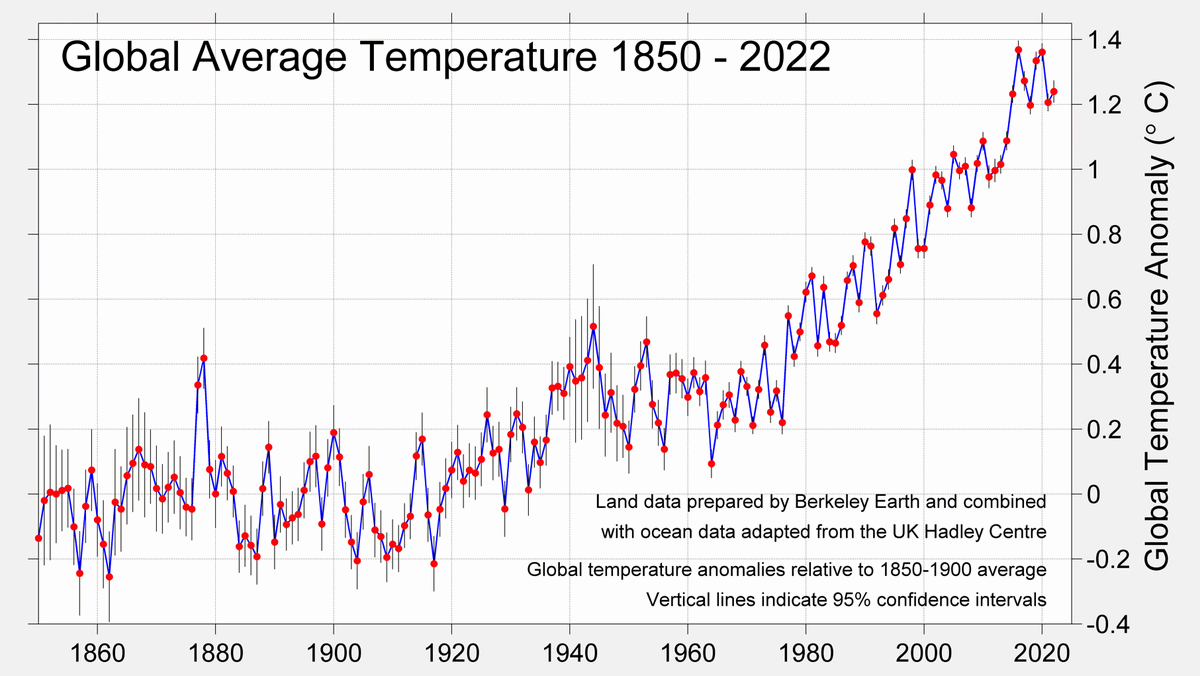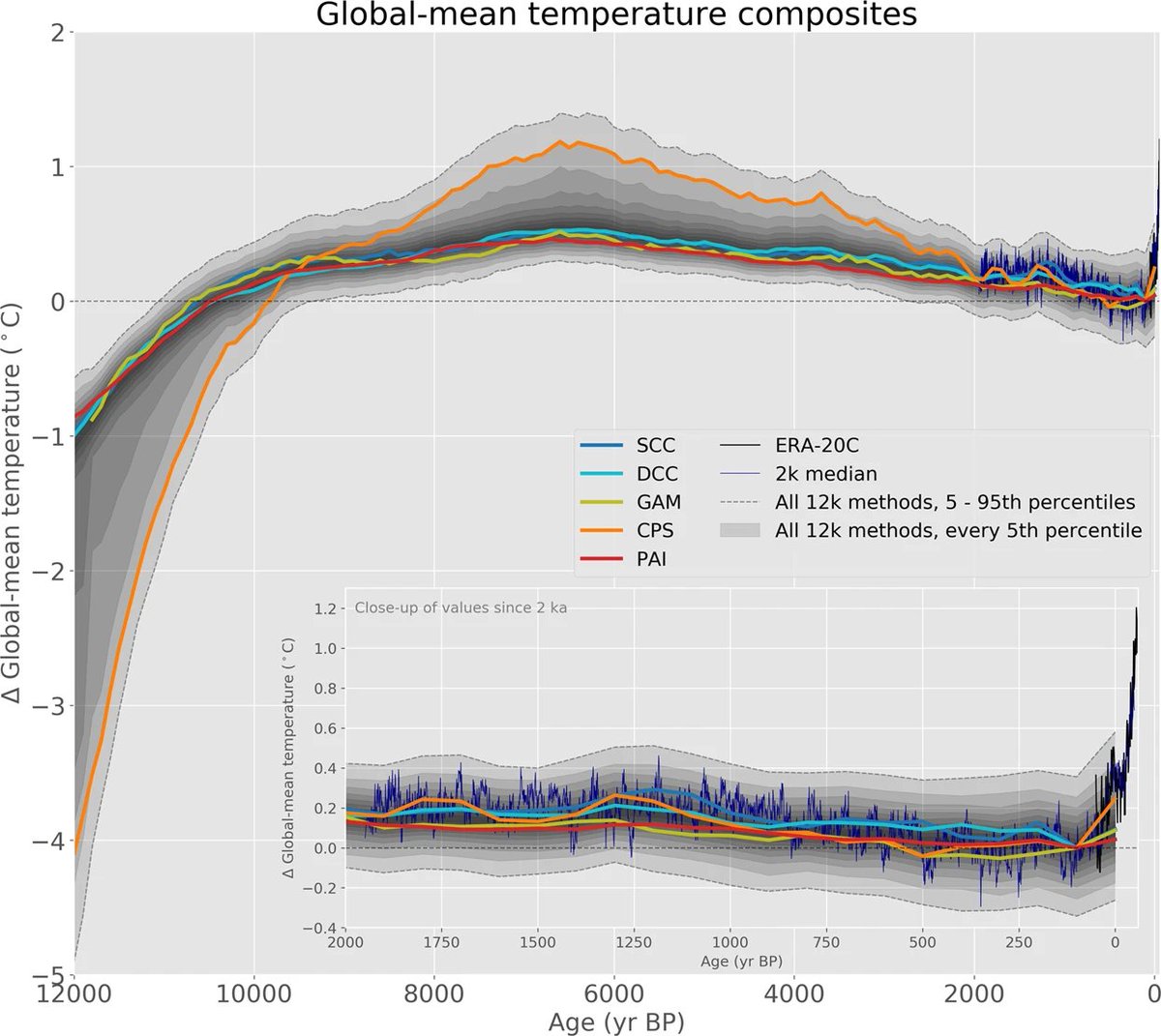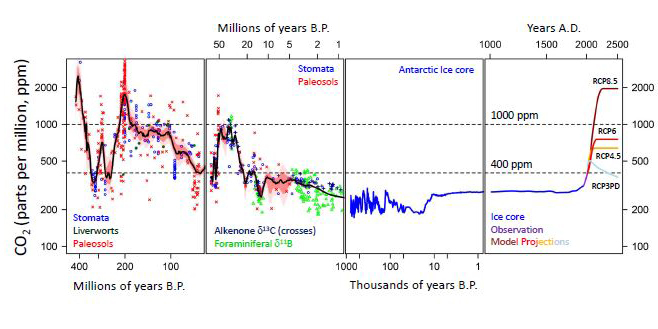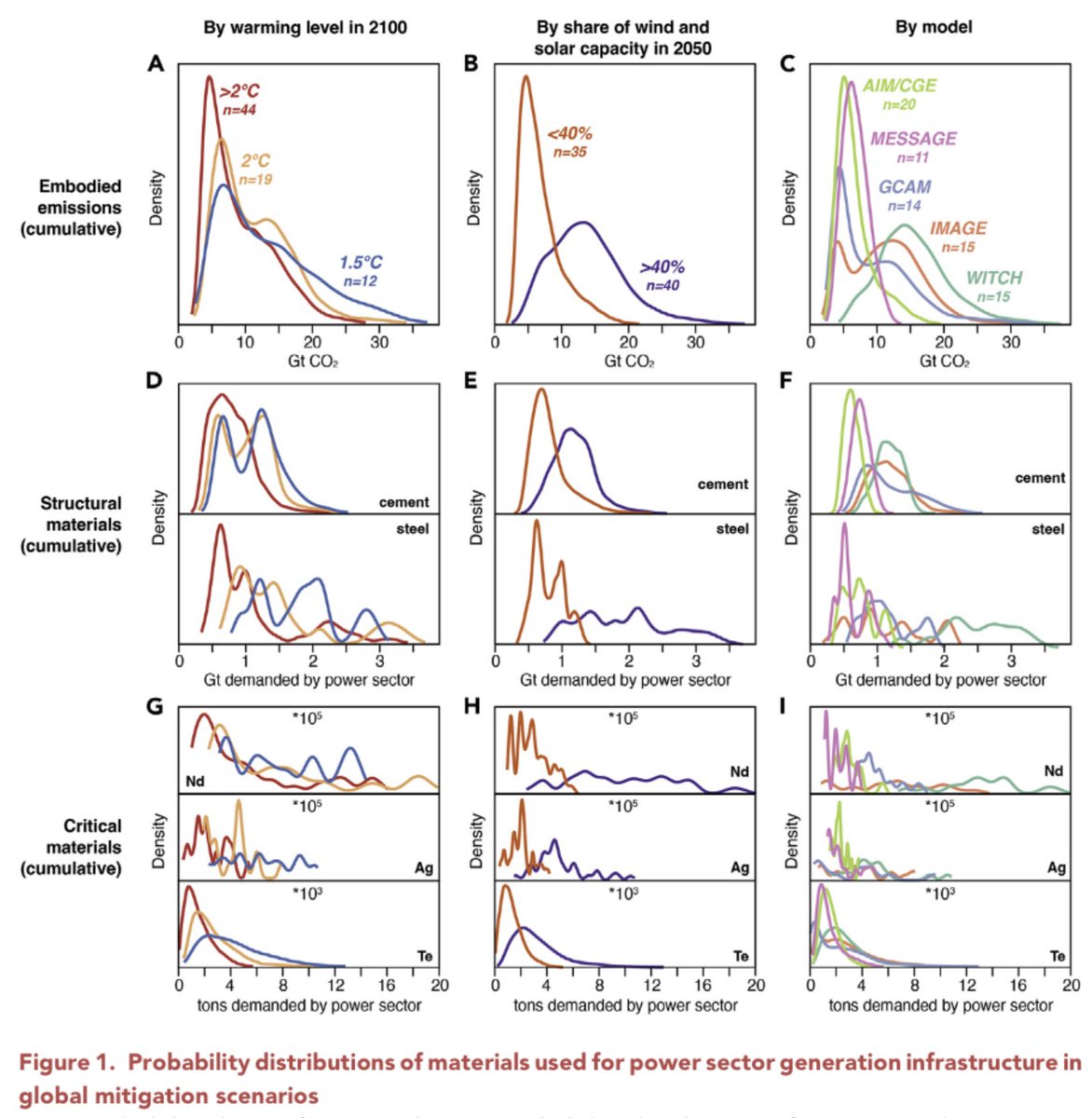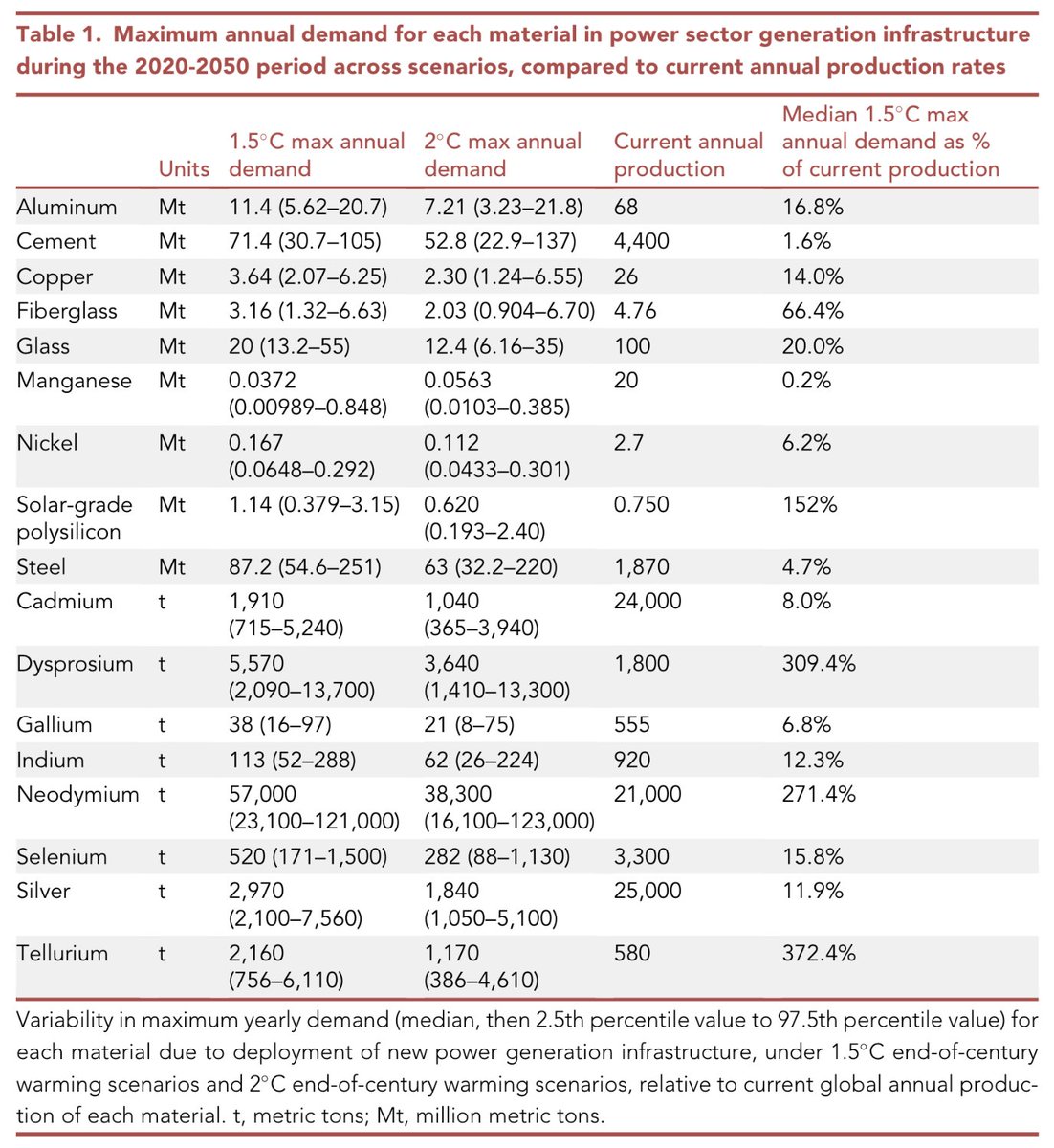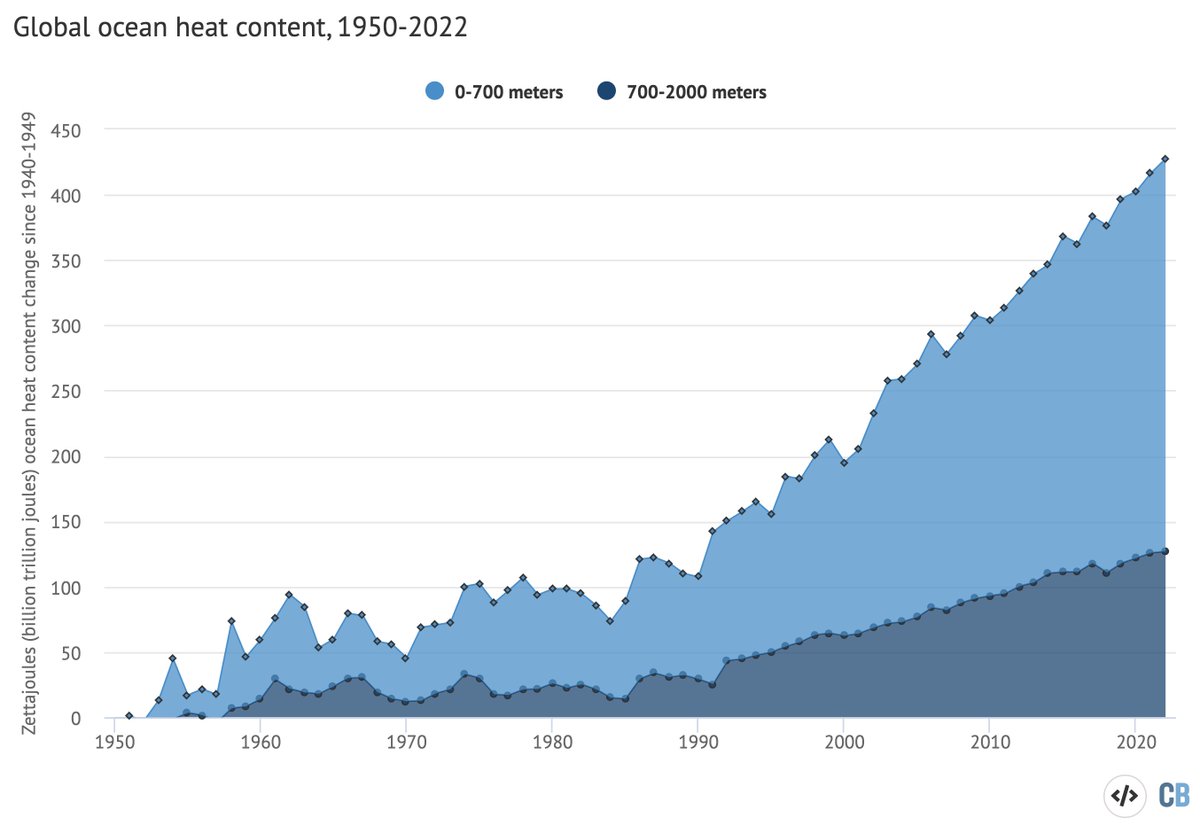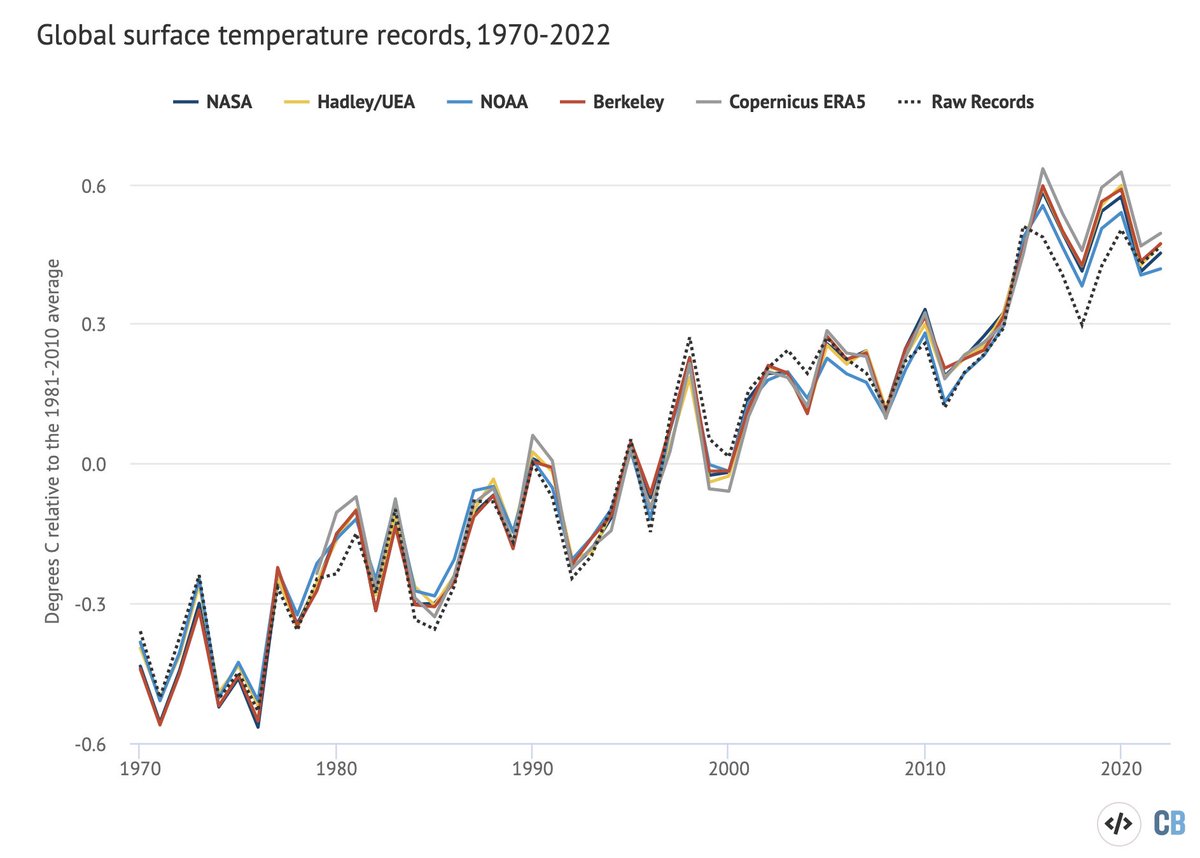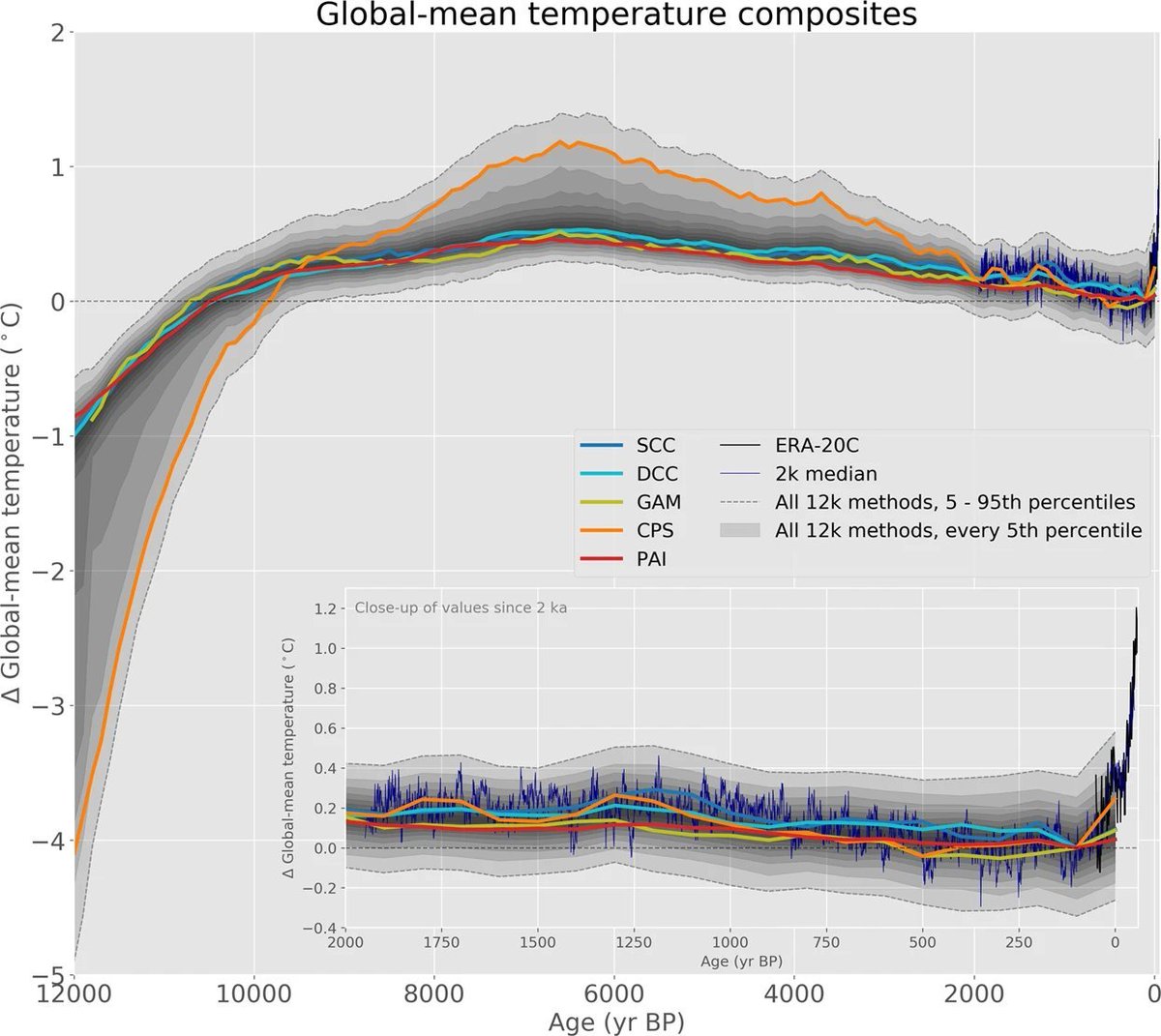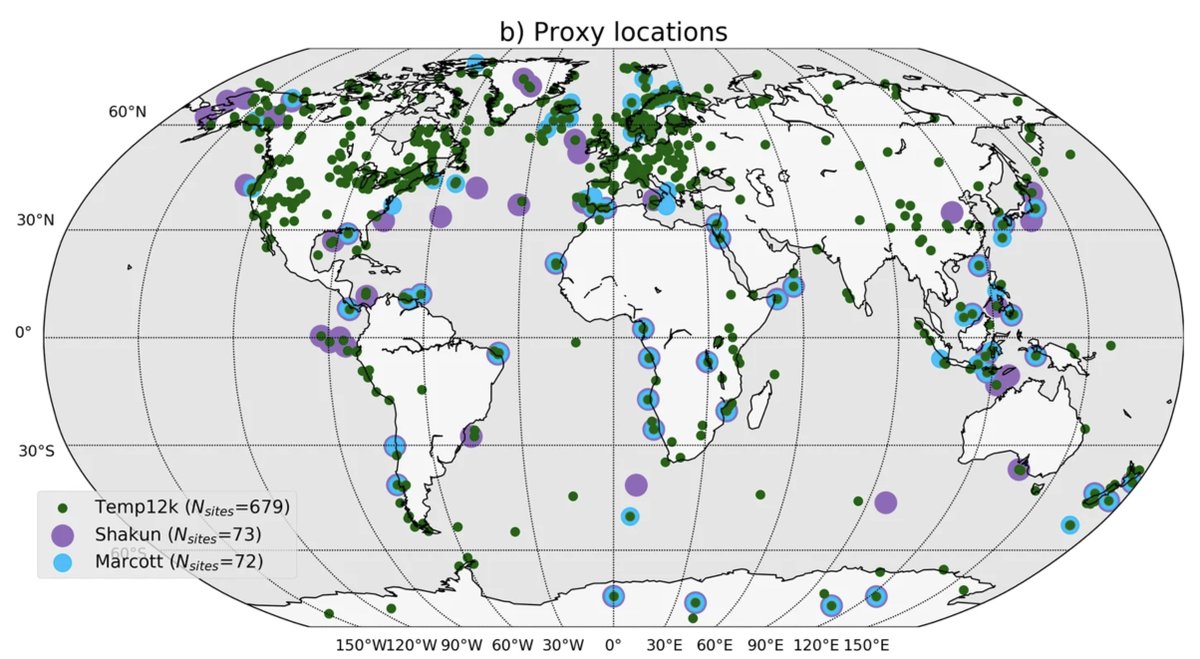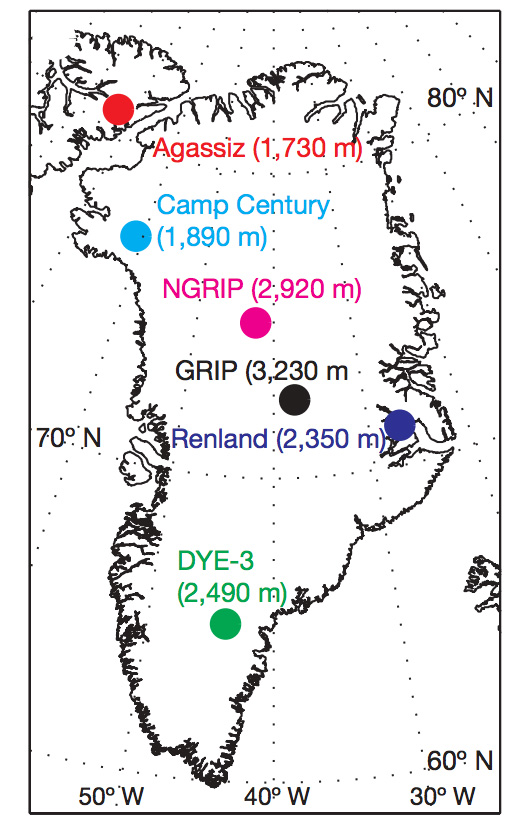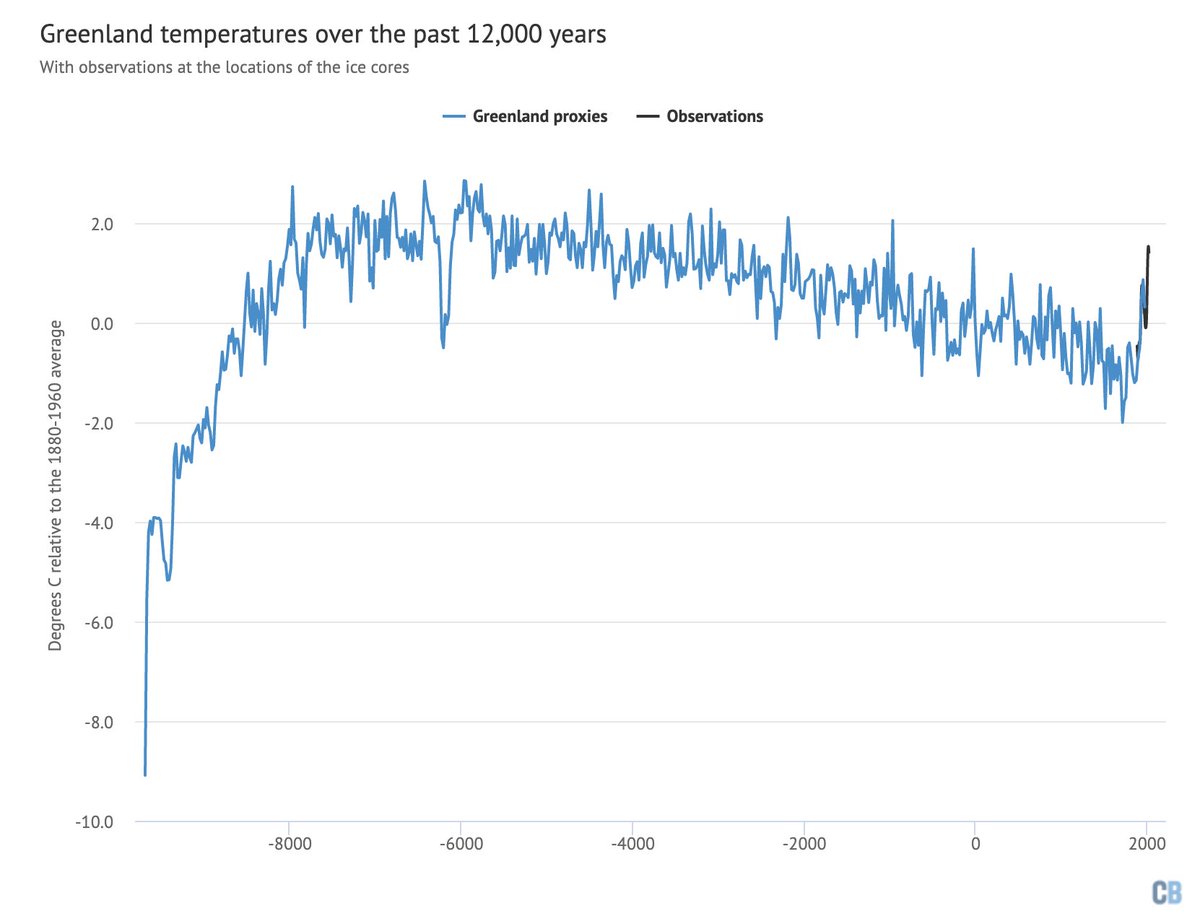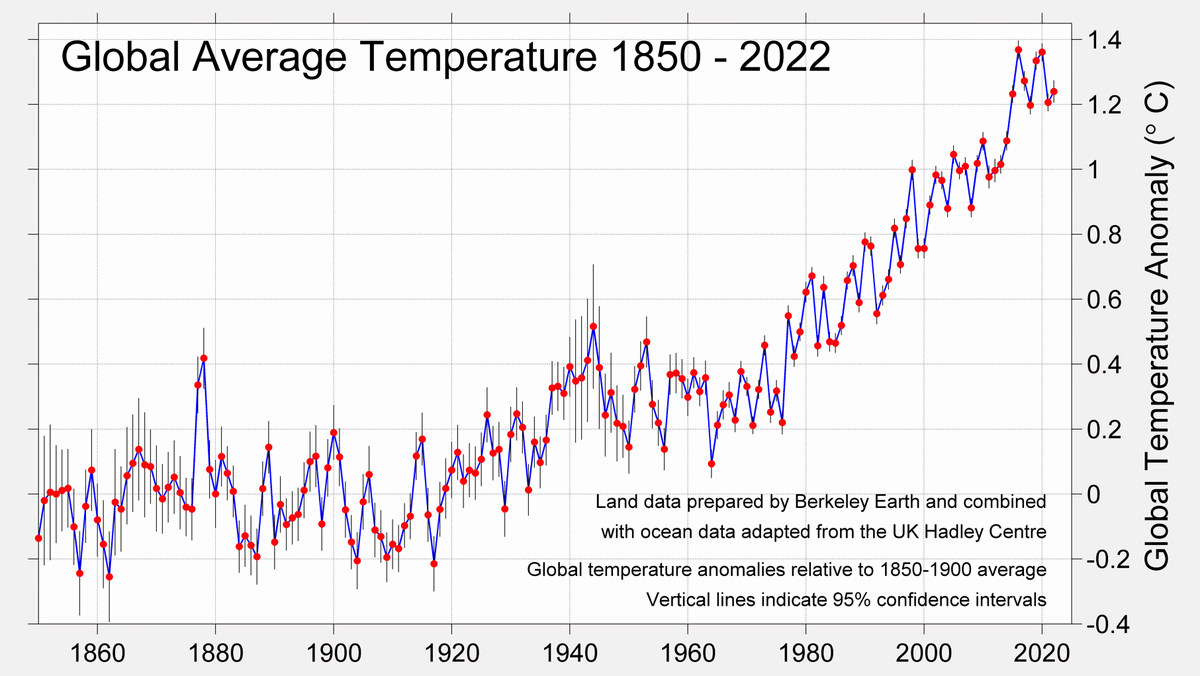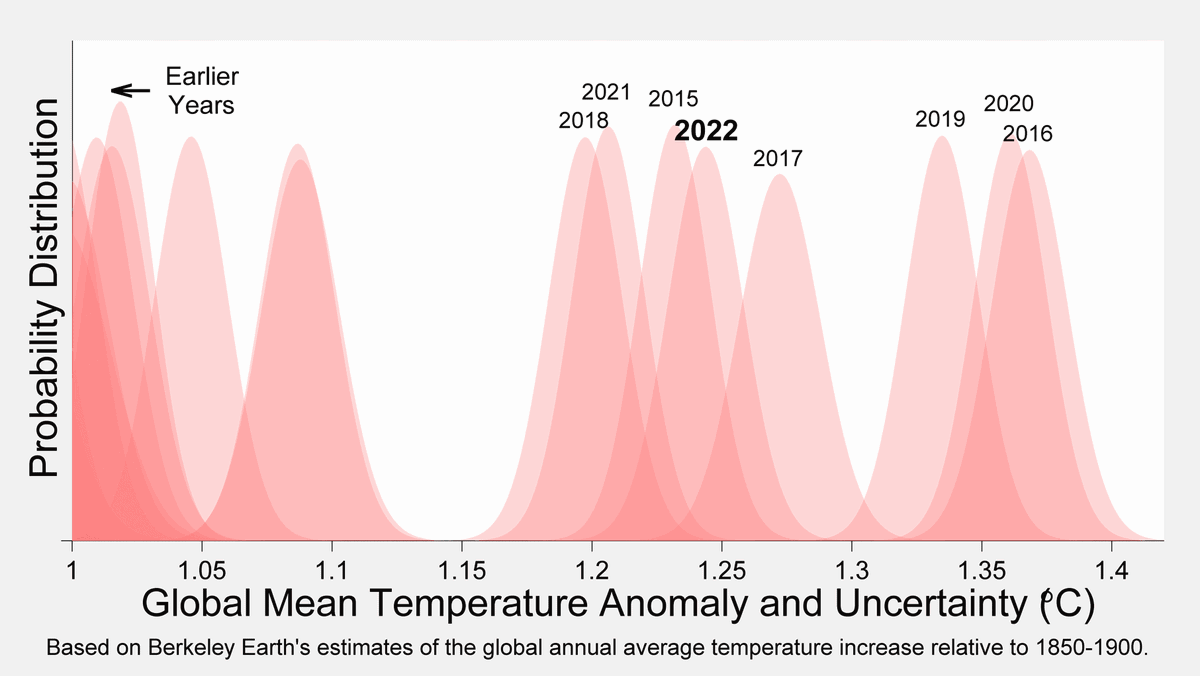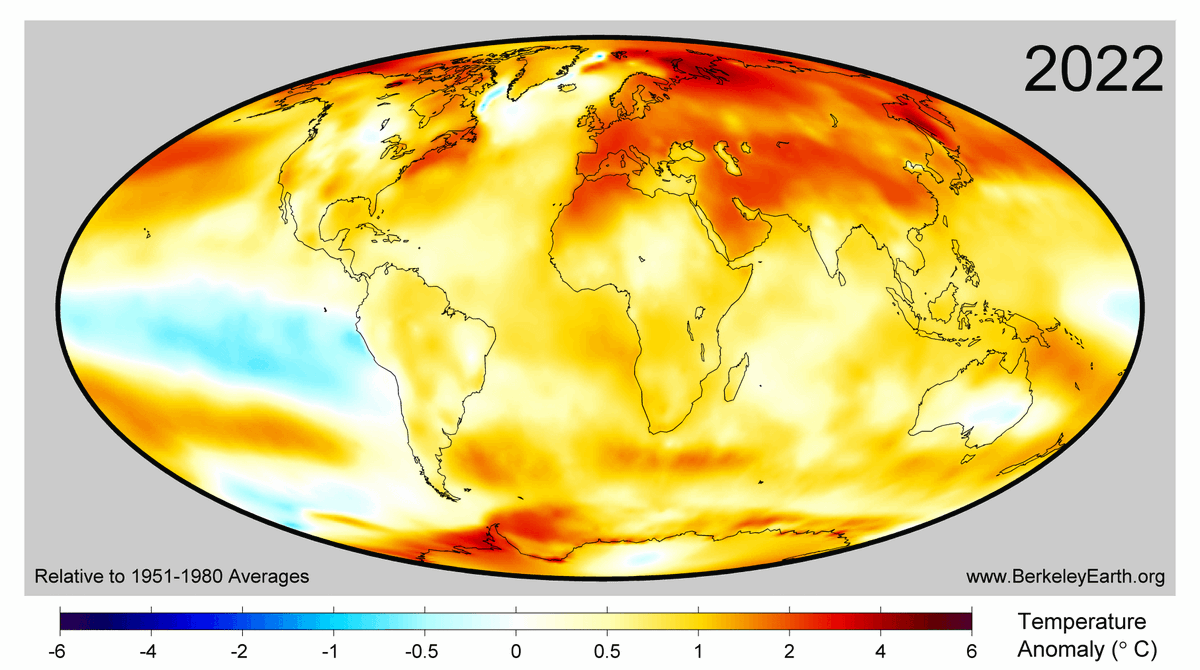
After three years of work, our massive review of climate tipping elements led by @wang_seaver is finally out in Reviews of Geophysics.
With 12 co-authors and clocking in at 81 pages, it provides a comprehensive review of 10 different tipping elements: agupubs.onlinelibrary.wiley.com/doi/10.1029/20…
With 12 co-authors and clocking in at 81 pages, it provides a comprehensive review of 10 different tipping elements: agupubs.onlinelibrary.wiley.com/doi/10.1029/20…
https://twitter.com/wang_seaver/status/1630686865954320384

The review provides a deep dive into each proposed tipping element, as well as summarizing their level of scientific understanding, timescale of occurrence, and likely global climate effects: 

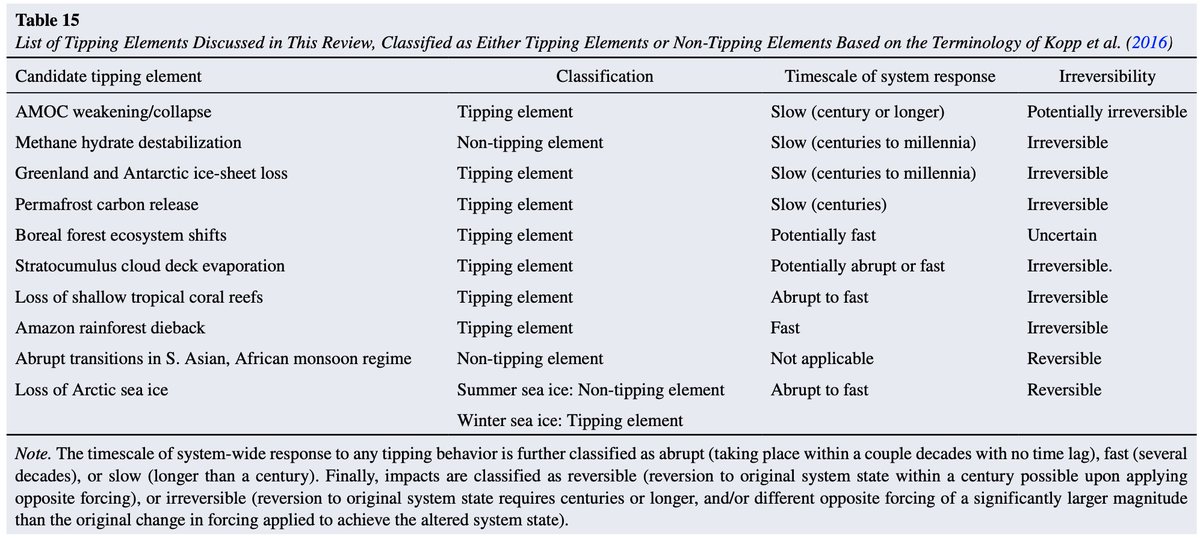
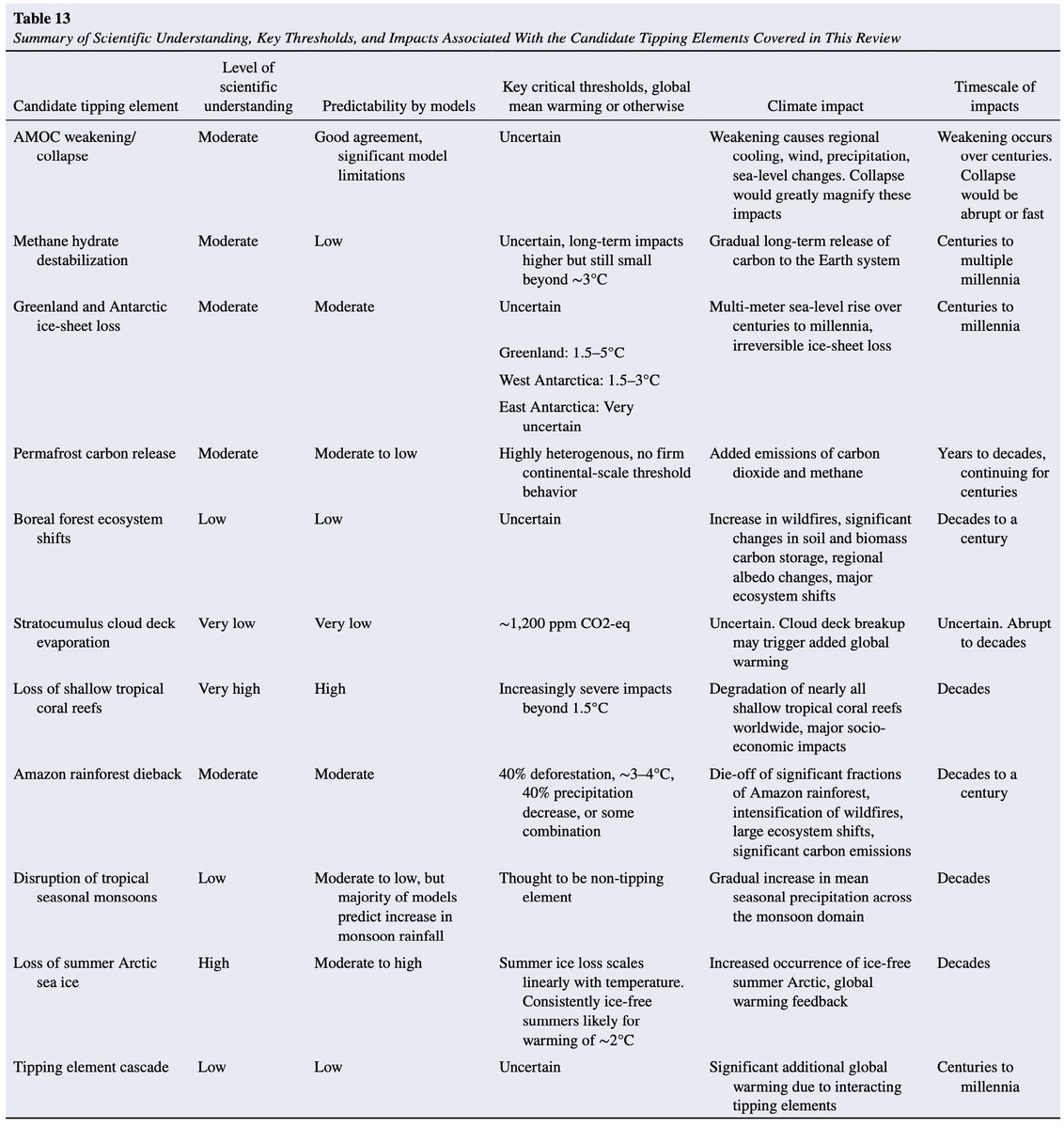
We find that these tipping elements may result in large impacts at a local or ecosystem level, and a number of them can exacerbate future warming beyond what is currently included in Earth system models. 
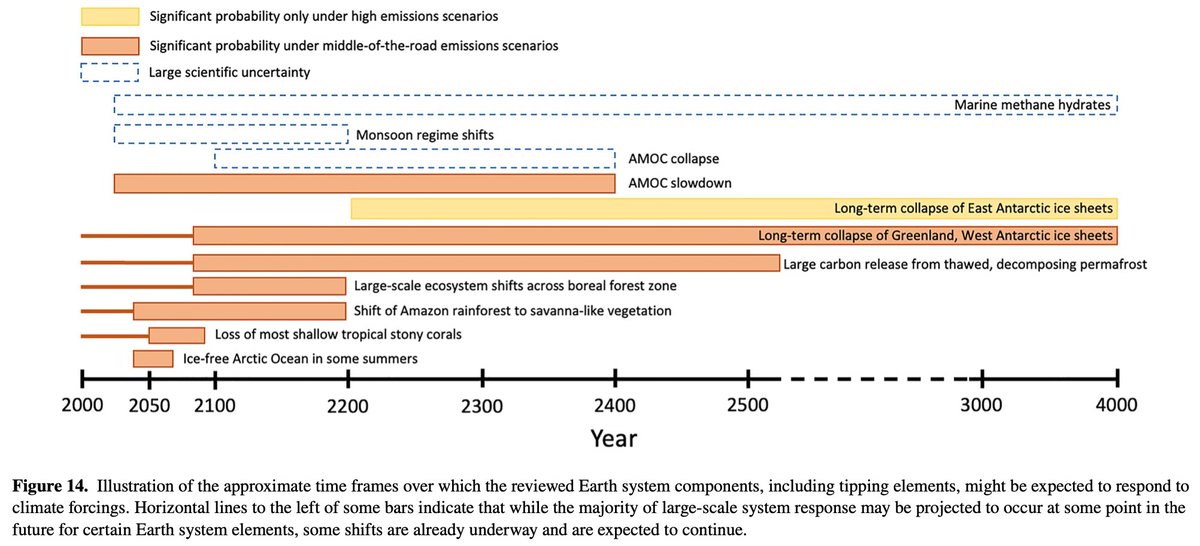
However, the combined effects of these tipping elements on global temperatures are likely much smaller than the effects of our emissions choices over the next three centuries. In other words, they make climate impacts worse but don't cause runaway warming: 
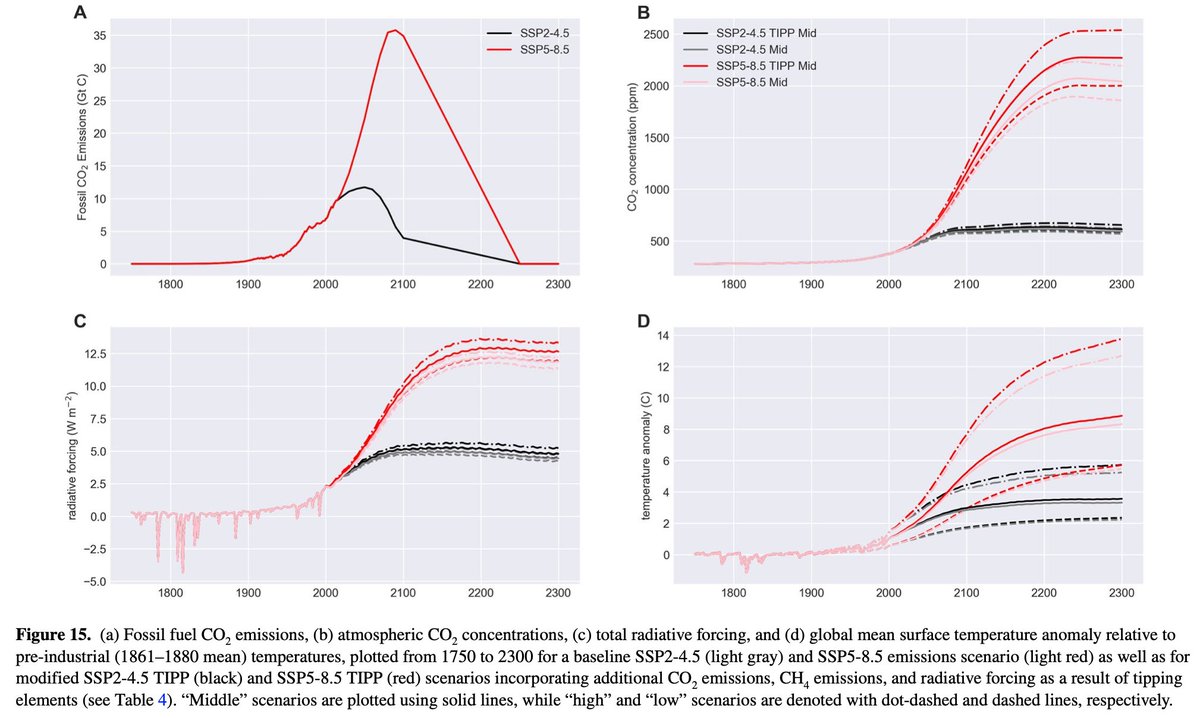
Overall, climate tipping elements are less a looming cliff after which climate change spirals out of control and cannot be stopped, and more like a slope that is hard to climb back up, where the severity of consequences is determined based on how much the future climate warms.
We are working with Reviews of Geophysics to make the article open access, but in the meantime you can view an earlier submitted version of the manuscript here: authorea.com/doi/full/10.10… (or DM me for a copy).
Thanks to all the coauthors (@wang_seaver, @LadyFortran, Elizabeth Lenz, John Kessler, @JulienneStroeve, @LianaAmazonia, @queenofpeat, @richardabetts, @sijia_zou, Wei Liu, and @BillBoos) for putting this together!
• • •
Missing some Tweet in this thread? You can try to
force a refresh


